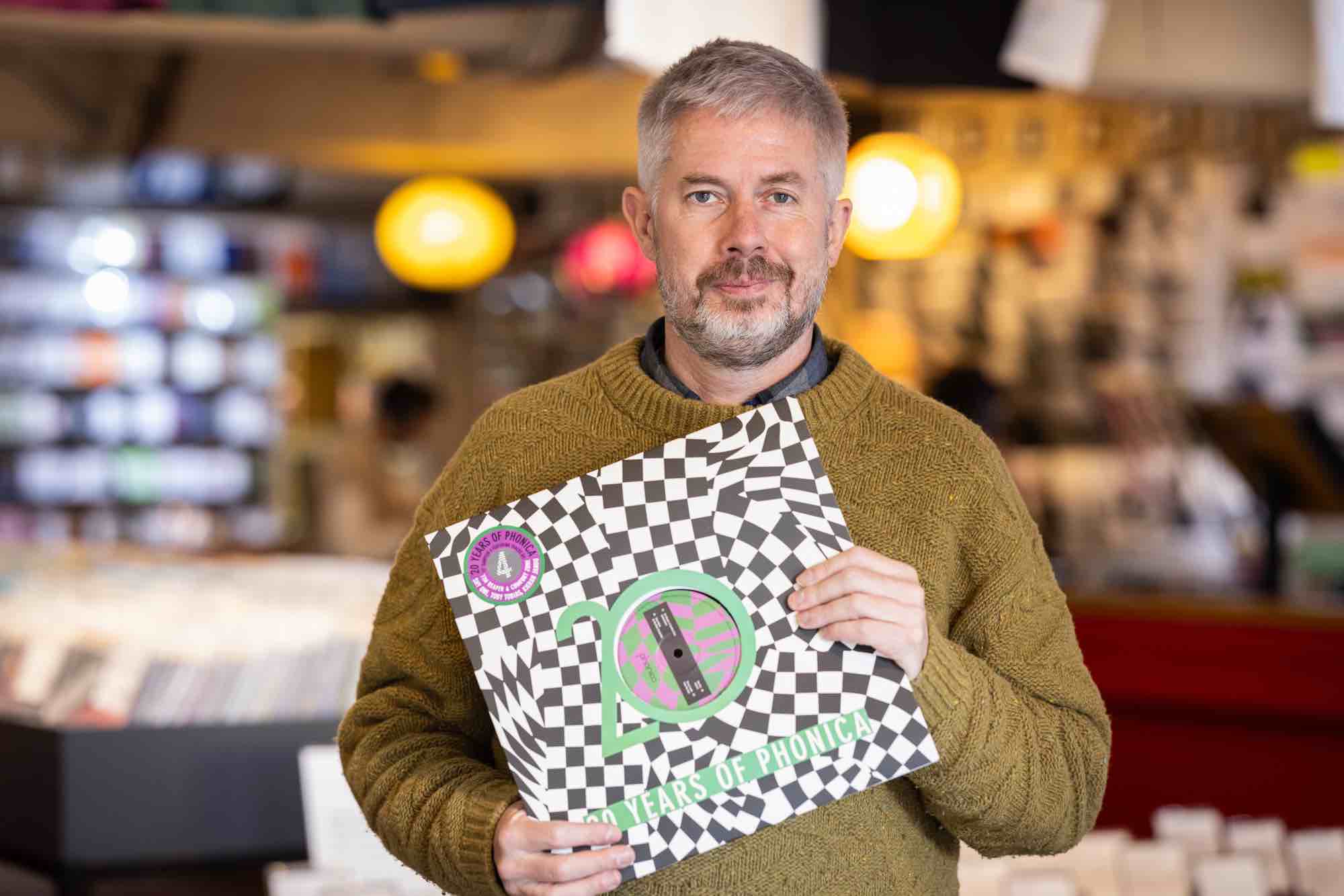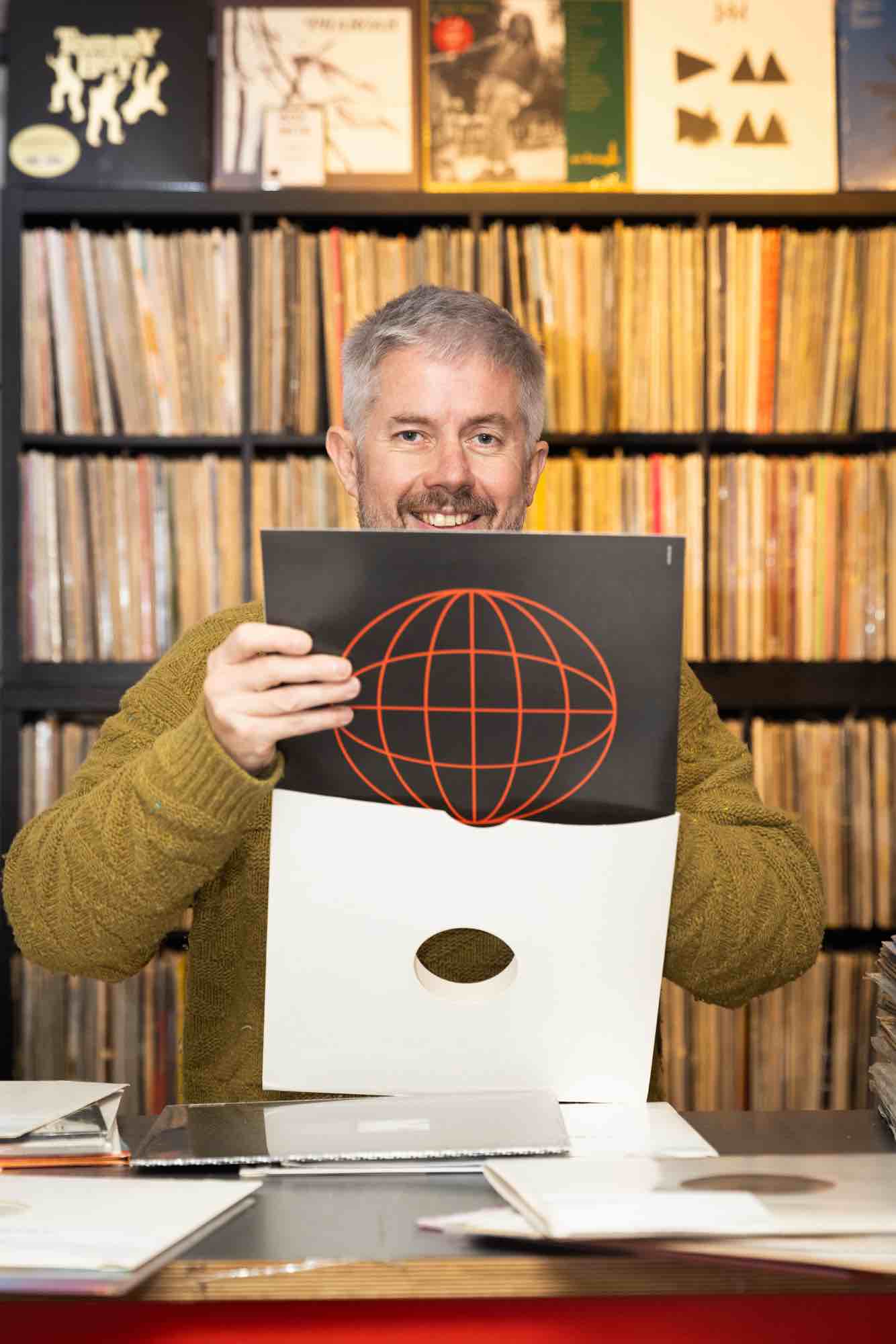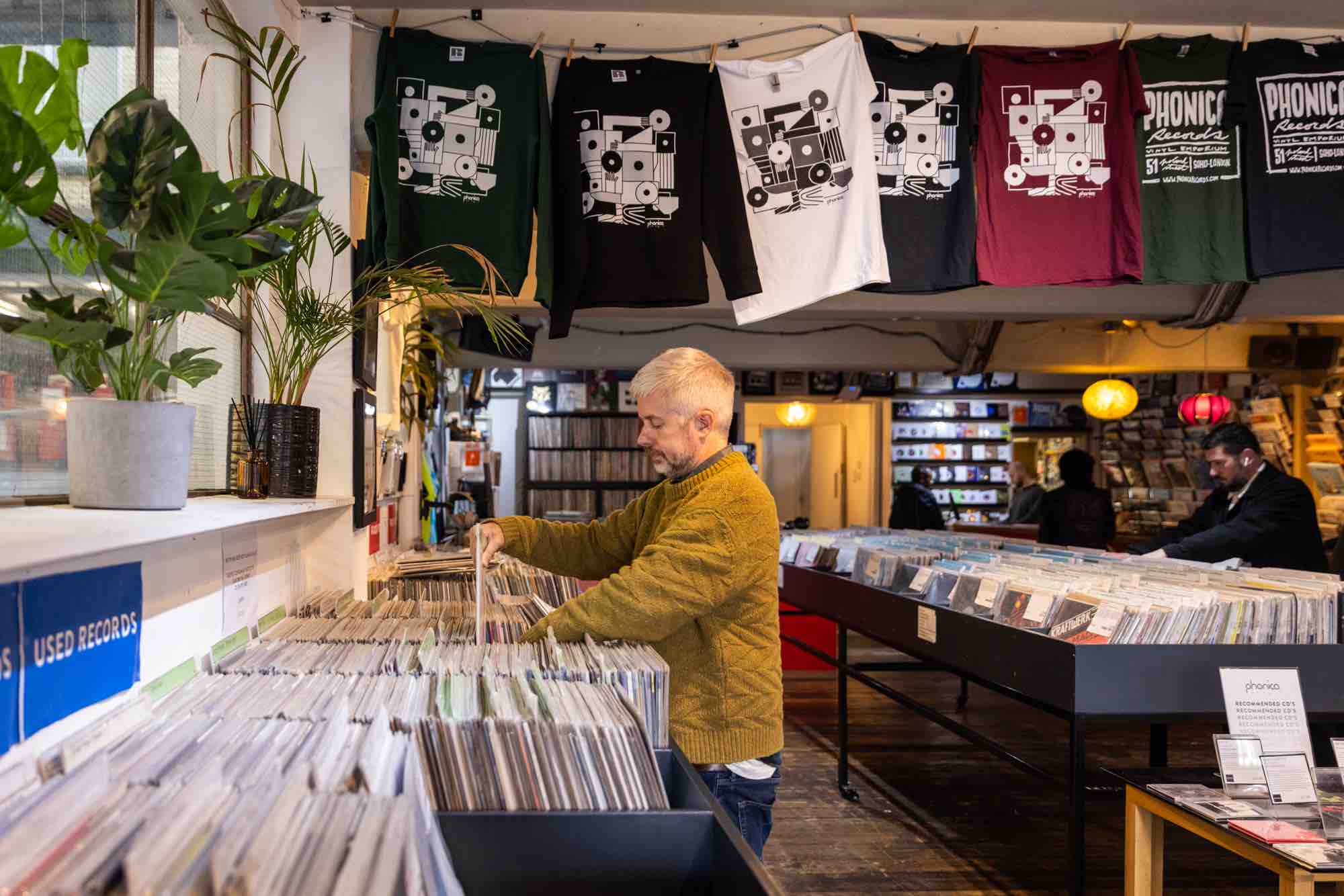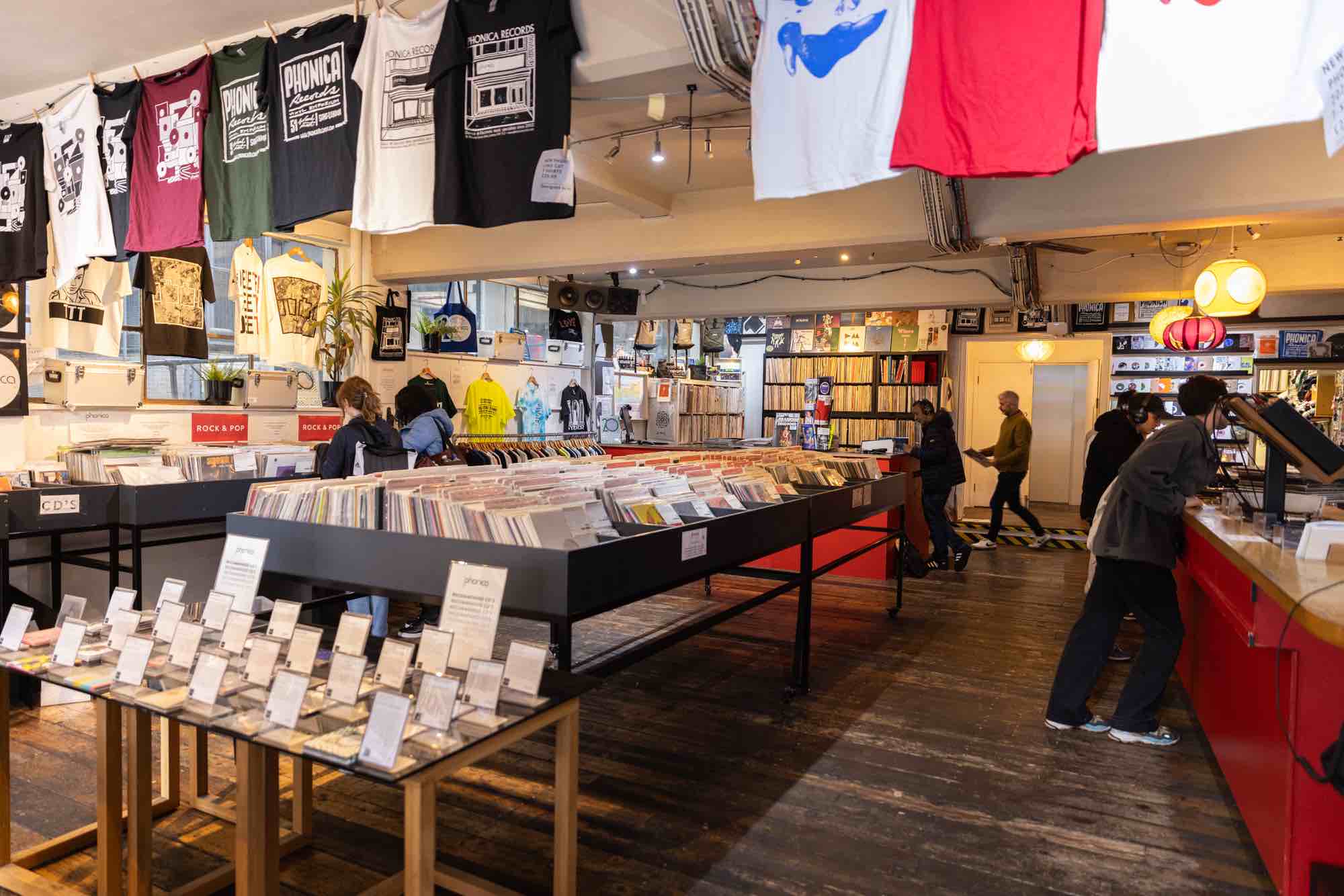Phonica has become a staple for vinyl enthusiasts worldwide. Despite its global reach, the heart of Phonica While they’ve expanded their presence with a shop in Berlin, their main headquarters will always be in the heart of England’s bustling capital.
Times have been strange for vinyl enthusiasts, with people not spending as many hours as they used to. However, perhaps we’re mistaken, and a new boom is on the horizon.
In recent years, the landscape of vinyl culture has shifted. With the rise of digital streaming and the convenience it offers, some feared that this might be a problem.
To delve deeper into the mysteries of the vinyl world, we recently had the privilege of sitting down with none other than Simon Rigg, the legendary owner of Phonica. With his wealth of experience and profound understanding of the industry, Simon provided insights into the past, present, and future of vinyl.
Join us as we explore the fascinating journey of Phonica Records and the enduring legacy of analog sound.
Hello Simon, a pleasure to meet you, if you could introduce yourself to our readers?
Hi, I’m Simon Rigg, manager and founder of Phonica Records since we opened back in 2003.
Can you share the story behind Phonica and how it evolved over the years? Including the decision to launch Phonica’s record label.
The guys behind Vinyl Factory and FACT magazine were interested in opening a record shop, and at the time, I was managing a small Soho record shop called Koobla Records. We already had the premises and the opportunity to begin anew—to name it as we pleased, stock it with our desired items, and hire new staff. I departed from Koobla to establish Phonica, alongside Tom Relleen (who later formed one half of the band Tomaga) and Heidi Van den Amstel (the renowned DJ Heidi).
We opened back in 2003 and quickly became popular, finding a niche with all the new underground electro house and minimal coming mostly from Germany at the time.

Kompakt, Perlon, Playhouse – these records were huge. With Heidi manning the counter, she helped to get us noticed and soon, every visiting DJ would pay a visit to Phonica when in town. Anthea, Hector, Palms Trax, Danielle, James Priestley (Secret Sundaze) and many more were all behind the counter at some point.
We launched the label a few years later in 2009, at first so we could put out records from the staff – Hector was first followed by Anthea’s JC Freaks project and we also put out some of the first records from Midland and Peggy Gou!
The compilation for Phonica’s 20th anniversary is very impressive if it comes to selected artists. Can you provide insights into the selection process for tracks and the overall concept of the compilation?
The compilation showcases both the past decade of Phonica’s output (since our 10 Year compilation) and the DJs, producers, and artists whom we admire and support in the shop. This ranges from established producers such as Daniel Avery, Dam Swindle, Paramida, and Gene on Earth to up-and-coming artists like System Olympia, Dauwd, Keisuke, and Nyra.
The compilation was made with contributions from most of the staff, but mostly myself, Nick WIlliams, Luther Vine and Kieran Jandu – with Alex Egan providing all the artwork as he did for the first compilation.

Can you share insights into the evolution of the label and the shop, its unique identity, and how it aligns with the future of vinyl and digitalism era of music?
We have always considered the label, much like the shop, as eclectic—showcasing a diverse range of dance music within the realm of electronic music. We aren’t solely a house or techno label; rather, we’ve released many different records across various sub-labels. These include the main Phonica label, Luther’s sub-label Phonica AM, Phonica White, the deep house-focused Karakul sub-label, and the Special Editions label. We aim to release music we are passionate about, while ensuring it aligns with the sound of the shop, what we sell, what we play, and the evolving tastes of our customers over time.
Looking back at the 20-year journey, what are some of the most memorable moments ?
Other than our compilations and releases, it’s our Record Store Day events that have always proven the most memorable. We’ve been hosting them since 2007, when it all began. These events have evolved from DJs spinning tunes in the shop (Soulwax drew quite a crowd) to the special basement sessions. Once a year, we take over the vast warehouse space beneath the shop, install a massive sound system, and welcome hundreds of people to enjoy performances by dance music legends—for free. Think Four Tet, Chez Damier, Juan Atkins, Special Request, Sherelle, Gilles Peterson, Todd Edwards, Robert Owens, Dennis Bovel, DJ Stingray, Paul Johnson, A Guy Called Gerald, Kink, Shanti Celeste, Peach, Danielle, Herbert, and the Blessed Madonna. These events create unforgettable moments every year—many of which you can find on YouTube!
The sense of community has been a fundamental aspect of Phonica’s success. How do you foster and maintain this community spirit within the shop, and what role has it played in the longevity of Phonica Records?

We’ve always strived to foster a sense of community spirit at Phonica. It has long served as a meeting spot for people when in town, hosting numerous in-store events such as record and book launches, Q&A sessions, and even free DJ lessons, often accompanied by complimentary drinks.
In addition to these special events, we also hold monthly DJ sessions around London, all free of charge. However, it’s the simple things that truly define our community – getting to know our regular customers, understanding their preferences, and providing tailored recommendations. This personal touch is what sets us apart.
What is the future for you and Phonica ?
The vinyl market is changing, especially for dance music. It’s getting smaller, with many releases struggling to sell the few copies needed to break even.

Bandcamp has taken a significant share of independent shop sales, as many artists prioritize it. The future lies in both platforms working together and being treated equally by labels and artists. However, there’s still a lot of music released exclusively on Amazon every week, much of which never makes it to Spotify or digital platforms. A weekly or monthly visit to a record store can introduce your ears to a lot of music you may not have heard. So, please support your local record store! Rest assured, we’ll be here for a while yet, including myself
SUPPORT PHONICA
and more music features here







